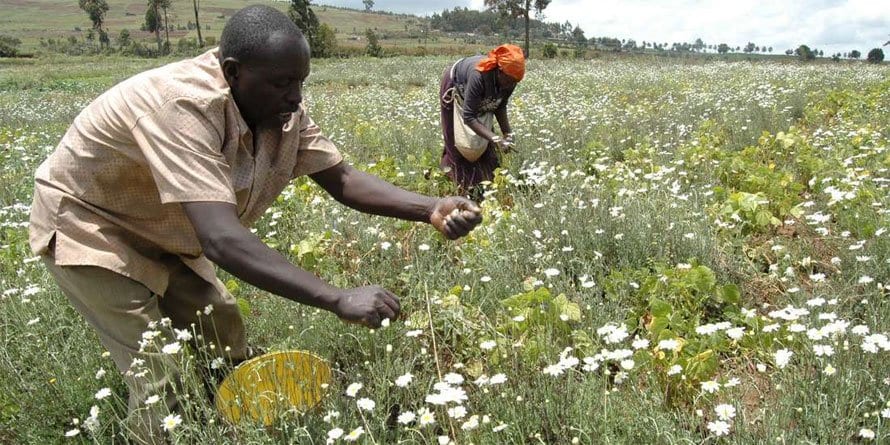Harvesting pyrethrum in Nakuru North. FILE PHOTO | NMG South African firm Inqo Investments has bought a stake in Kentegra Biotechnology Holdings, one of the six companies growing pyrethrum in Kenya for an undisclosed amount. The deal adds to its purchase of Naivasha-based South Lake Medical Centre for Sh100 million last year in partnership with other institutional investors, including Johnson & Johnson. Inqo, which is listed on the London Stock Exchange (LSE), says the latest investment has seen it enter the natural insecticide market which is undersupplied. The chrysanthemum flowers must be grown in specific conditions to produce pyrethrum. These conditions are found in a few places around the world, predominantly East Africa (Uganda, Rwanda, and Kenya) and Tasmania. “Inqo, the social impact investment company … announced an investment in Kentegra Biotechnology Holdings LLC, a Kenyan based biotechnology company producing the natural insecticide pyrethrum,” the company said in a market update. It noted that the current natural or organic pyrethrum market is constrained by supply due to the specific conditions required to grow and produce pyrethrum. “Currently demand is predominantly from the home biocide market but with synthetic pesticides for agricultural use increasingly regulated due to their negative environmental impact, this market is also likely to expand,” Inqo said. Kentegra produces pyrethrum, a natural active ingredient from the chrysanthemum flower, for use in the home biocide, agricultural and pharmaceutical pesticide markets. The US firm has established relationships with buyers in Europe, Africa and Asia. With ideal growing conditions, Kenya was once the largest producer of pyrethrum in the world until poor management and synthetic alternatives led to a major decline in the nationalised industry in the early 2000s. In 2013, the Kenyan government liberalised the pyrethrum sector in a concerted effort to revive the industry and support the growing worldwide ‘organic’ movement.






